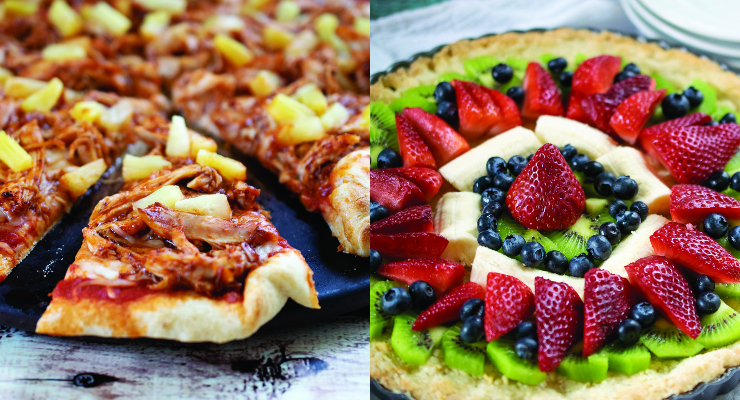
Spending moments together with loved ones carries obvious benefits like time to catch up and opportunities to bond, but sharing meals actually provides definitive value for families. With restricted social interactions and confinement at home due to COVID-19, many families face meal challenges that have shifted from juggling busy schedules to seeking new ways to mix up the traditional menu or using digital solutions to reconnect at a virtual table.
A study published in the “Journal of Nutrition Education and Behavior” funded by the FMI Foundation shows more frequent family meals are associated with better dietary and family functioning outcomes. The results build on years of previous research studies to punctuate the creation of the Family Meals Movement, which encourages Americans to pledge to share one more family breakfast, lunch or dinner at home per week.
Consider these notable findings from the study:
- Family meals improve fruit and vegetable consumption. Studies show a positive relationship between family meal frequency and fruit and vegetable intake when examined separately, but also when fruit and vegetable intake are combined.
- Family meals improve family dynamics. Nearly all the studies included in the systematic review and meta-analysis demonstrated a positive relationship between family meal frequency and measures of family functioning. Family functioning is defined as family connectedness, communication, expressiveness and problem-solving.
“There are thousands of individual studies that examine the impact of family meals on nutrition and family behavior, but this meta-analysis looks at the relationship between family meal frequency and family functioning outcomes,” said David Fikes, executive director of the FMI Foundation. “We can confirm that family meals are a valuable contributor of improved nutrition and family dynamics.”
Find tips, recipes and ways to increase family meal frequency at familymealsmovement.org.
Hawaiian Chicken Pizza
Recipe courtesy of Toby Amidor on behalf of the FMI Foundation
Prep time: 10 minutes
Cook time: 20 minutes
Nonstick cooking spray
1 1/2 cups shredded rotisserie chicken
3/4 cup barbecue sauce
1 ready-made pizza crust or whole wheat pizza crust (10 ounces)
1 cup canned or jarred tomato sauce
2 cups shredded mozzarella cheese or part-skim mozzarella cheese
1 cup finely chopped fresh pineapple or canned pineapple tidbits packed in 100% juice
Preheat oven to 375 F. Coat pizza pan or baking sheet with nonstick cooking spray.
In medium bowl, combine rotisserie chicken and barbecue sauce.
Place pizza crust on pan and evenly spread tomato sauce over crust. Sprinkle evenly with cheese. Top evenly with rotisserie chicken mixture and pineapple.
Bake until crust is crisp and browned around edges, about 10 minutes. Let pizza cool 10 minutes before cutting into eight slices.
German Fruit Tart
Recipe courtesy of Deanna Segrave-Daly on behalf of the FMI Foundation
1 cup all-purpose flour
1/4 cup whole-wheat pastry flour
1/2 cup sugar
1 egg
1 tablespoon half-and-half or cream
1/8 teaspoon almond extract or 1/4 teaspoon vanilla extract
6 tablespoons unsalted butter, thinly sliced
cornstarch
sliced strawberries
sliced kiwi
sliced banana
blueberries
2 teaspoons turbinado or powdered sugar (optional)
Preheat oven to 350 F.
To make crust, beat together flours, sugar, egg, half-and-half and almond extract. Add butter slices and mix together until sticky ball of dough forms. Refrigerate 30-60 minutes.
On heavily floured surface, knead dough a few times and roll out to fit greased 10-inch tart pan.
Carefully spread dough into tart pan and bake 15-20 minutes, or until tart starts to turn golden brown. Remove from oven and cool.
Dust crust with cornstarch to help fruit stick to crust. Arrange strawberries, kiwi, banana and blueberries on top of crust; sprinkle with sugar, if desired.













